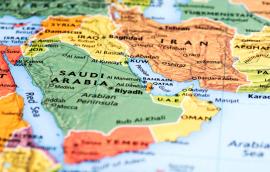Latin America Initiative | Commentary
Dilma’s Nightmare: Venezuelan Crisis Spills Into Brazil Although the hemisphere is keen to insulate itself from Venezuela’s political and economic problems, the country constantly challenges regional capabilities in crisis management. The latest victim of the turmoil in Venezuela is the Brazilian government.
July 16, 2015







